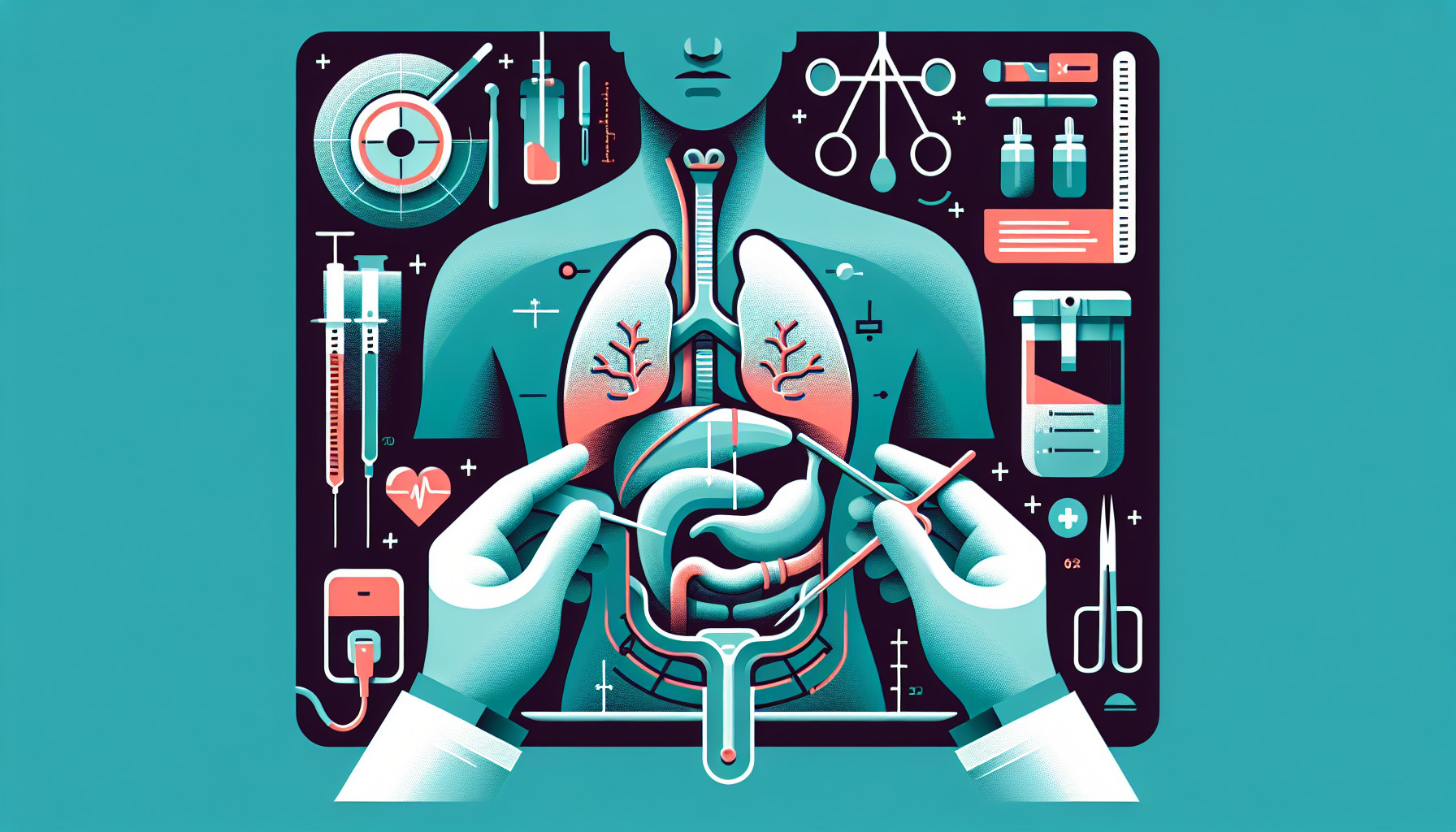Our Summary
This study looked at the success rates of pancreas transplants in the United States from 2001 to 2020. They specifically focused on the survival of the transplanted organ (graft) and the patient. The data was divided into two groups: those who received transplants from 2000 to 2009 and those who received transplants from 2010 to 2020.
The study found that out of 3,008 pancreas transplants, about 55% were done from 2000 to 2009 and about 45% were done from 2010 to 2020. The survival rate of the transplanted organ increased from around 52% in the earlier group to almost 59% in the later group. The survival rate of the patients also slightly increased from around 75% in the earlier group to just under 75% in the later group.
The researchers concluded that despite advancements in surgical techniques, organ preservation, and immunosuppressive treatments, the use of pancreas transplants alone has remained relatively low in the US. However, the survival rates of both the transplanted organ and the patients have shown improvement over the years.
FAQs
- What was the focus of the study on pancreas transplants from 2001 to 2020?
- How did the survival rate of the transplanted organ and the patients change over the years according to the study?
- What conclusion did researchers draw regarding the use of pancreas transplants in the US over the study period?
Doctor’s Tip
A doctor may tell a patient considering a pancreas transplant that while the survival rates of both the transplanted organ and the patient have improved over the years, it is important to carefully consider the risks and benefits of the procedure. They may also emphasize the importance of following a strict medication regimen and lifestyle changes post-transplant to ensure the best possible outcomes.
Suitable For
Patients who are typically recommended for pancreas transplant are those who have type 1 diabetes and severe complications such as frequent hypoglycemia, diabetic ketoacidosis, or kidney failure. These patients may require frequent insulin injections or have difficulty controlling their blood sugar levels despite medical management. They may also have complications such as neuropathy, retinopathy, or cardiovascular issues related to their diabetes.
In addition, patients who are candidates for pancreas transplant may have end-stage kidney disease and require a simultaneous kidney-pancreas transplant to improve their overall health and quality of life. Patients who have had a failed kidney transplant and are in need of a new kidney may also be considered for a pancreas transplant to improve the success of their kidney transplant.
Overall, pancreas transplant is recommended for patients with type 1 diabetes who have complications that significantly impact their quality of life and overall health, and who have not been able to achieve adequate control of their diabetes with medical management alone.
Timeline
Before the pancreas transplant, a patient typically undergoes a thorough evaluation process to determine their eligibility for the surgery. This may include blood tests, imaging studies, and consultations with various specialists. Once deemed suitable for a transplant, the patient is placed on the transplant waiting list.
After receiving a pancreas transplant, the patient will be closely monitored in the hospital for several weeks to ensure the organ is functioning properly and to manage any potential complications. They will also need to take immunosuppressive medications to prevent rejection of the transplanted organ.
In the months and years following the pancreas transplant, the patient will continue to have regular follow-up appointments with their transplant team to monitor their progress and adjust their medications as needed. With proper care and adherence to medical recommendations, many patients are able to enjoy improved quality of life and better control of their diabetes following a successful pancreas transplant.
What to Ask Your Doctor
- What are the risks and potential complications associated with a pancreas transplant?
- How long is the recovery process after a pancreas transplant and what can I expect during this time?
- What is the success rate of pancreas transplants at this hospital or transplant center?
- How will I need to adjust my lifestyle, diet, and medication regimen after a pancreas transplant?
- What is the expected lifespan of a transplanted pancreas and what factors can affect its longevity?
- How often will I need to follow up with my transplant team after the surgery?
- Are there any alternative treatments or therapies that I should consider before pursuing a pancreas transplant?
- What should I do if I experience any signs of rejection or complications after the transplant?
- How will a pancreas transplant impact other chronic health conditions or medications that I currently have?
- Can you provide me with resources or support services for patients who have undergone a pancreas transplant?
Reference
Authors: Moein M, Papa S, Bahreini A, Saidi R. Journal: World J Surg. 2023 Sep;47(9):2250-2258. doi: 10.1007/s00268-023-07062-w. Epub 2023 May 31. PMID: 37258778
